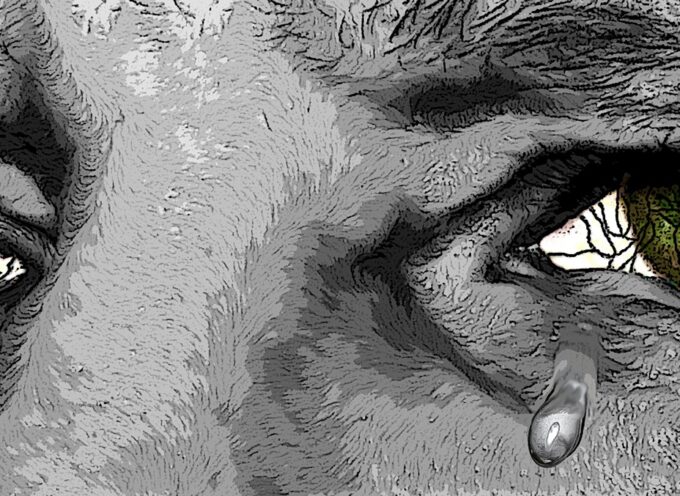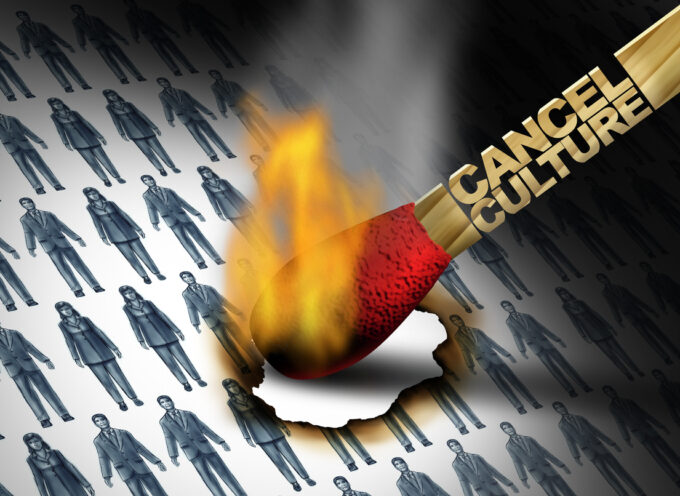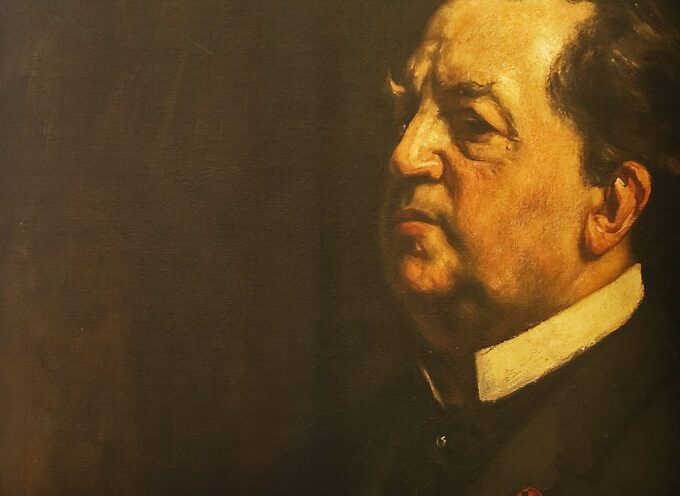In recent weeks, North Carolina Supreme Court Justice Paul Newby made the news, setting off significant public debate when he said that our “religious liberties are hanging by a thread.” The comment caused no small amount of controversy and spawned opinion pieces published by The Fayetteville Observer, The Charlotte Observer, and other outlets.
But is Justice Newby correct to assert that the United States is precariously close to dismantling religious liberty as enshrined in the United States Constitution? Yes, and in order to set forth some of the evidence, let us consider the concept of religious liberty, summarize a recent ruling made by the Supreme Court of the United States (SCOTUS), and illustrate the negative effects of that ruling on religious communities.
The U. S. Constitution defines religious liberty as the “free exercise” of religion.
The First Amendment to the United States Constitution declares that, “Congress shall make no law respecting an establishment of religion, or prohibiting the free exercise thereof.” It is important to note that the amendment defines religious liberty as the free “exercise” of religion. It does not restrict religious exercise by confining it to privately held beliefs or semi-public worship services. The Constitution is clear. Religious freedom extends to public actions.
Religious liberty is a first freedom because it stands at the center of what it means to be human. As a Constitutional freedom, it declares each person has value and dignity, each person is free to hold his or her own convictions about ultimate reality, and each person is guaranteed the liberty to align his or her life with those convictions. And just as importantly, each of us is free to do so openly, without fear.
When religious freedom is threatened, every other freedom is threatened as well. Religion alone can check the government’s perpetual intrusion on the liberties of individuals, groups, and mediating institutions. For that very reason, however, certain governmental and non-governmental actors in our nation wish to restrict religious liberty. Confining religion to the realm of privately held beliefs and semi-public houses of worship would allow government to function in all manner of capacities beyond its Constitutional mandate. This is the very outcome being sought by certain progressive organizations and political actors.
The Supreme Court has threatened religious freedom.
In the last few years, a number of factors have coalesced to endanger religious liberty in America. Chief among these threats is the effort to redefine religious liberty itself. Progressives have made a concerted effort to reduce the “free exercise” of religion either to private piety or the semi-public worship which takes place within the four walls of a church building. Nowhere has this been seen more clearly than at the level of the Supreme Court. In Obergefell v. Hodges (June 2015), the Court handed down a 5-4 decision in which the majority asserted that same-sex couples had a fundamental right to marriage. In one decision, the Supreme Court forever-altered the definition and nature of marriage in America. Beyond the novelty of this ruling, it is truly problematic that such an important issue was taken up by the Court, circumventing both the democratic and legislative processes that America was founded upon.
More to the point, Chief Justice Roberts’s dissenting opinion notes that the Obergefell ruling further solidifies the restriction of religious liberty. “The majority,” Roberts wrote “…suggests that religious believers may continue to ‘advocate’ and ‘teach’ their views of marriage. The First Amendment guarantees, however, the freedom to ‘exercise’ religion. Ominously, that is not a word the majority uses. Unfortunately, people of faith can take no comfort in the treatment they receive from the majority today.”
Similarly, Justice Alito writes, “I assume that those who cling to old beliefs will be able to whisper their thoughts in the recesses of their homes, but if they repeat those views in public, they will risk being labeled as bigots and treated as such by governments, employers, and schools…the Nation will experience bitter and lasting wounds.”
If religious liberty is restricted, our nation will suffer.
A secular progressive might ask, “So what? Why does this really matter? Why are you whining about the fact that some bakers and florists will be forced to decide whether to service gay weddings? Are you employing the religious liberty argument as a mask for intolerance?”
In response, we must contend that a truly evangelical concern for religious liberty is not motivated by hate and cannot be dismissed as whining or special pleading. Our defense of religious freedom is motivated by our conviction that religion is a heartfelt reality, which by its very nature, radiates outward into our public speech and actions. We cannot bifurcate the private from the public.
Neither are we whining about something that will have little or no effect on religious believers. The erosion of religious liberty will have great effect. If the secular progressive agenda moves forward and its restrictive view of religious liberty takes hold, religious believers will find themselves unable to exercise their religion without serious social, cultural, legal, and economic repercussions.
Consider, for example, the implications for religiously conservative institutions of higher education. These institutions have confessional statements that conflict with the reigning progressive prejudices concerning, for example, sexual behavior or abortifacient contraceptives. As the progressive view of religious liberty takes hold, these institutions may be stripped of their tax-exempt status, or forfeit their accreditation, if the federal government determines the doctrinal standards of such institutions are “hateful”—or too far out of step with progressive orthodoxy. In addition to these issues, these institutions will likely lose revenue because of the “donor stigma” associated with giving to conservative causes. These are not minor inconveniences.
Evangelicals aside, however, the entire nation suffers when religious liberty is restricted. On our current trajectory, one version of one religion—today’s secular progressivism—will be granted complete freedom in the public square while other religions will be barred from participation. This does not constitute freedom in any sense. But the day will come when the concerns of today’s secular progressives will not reflect the concerns of tomorrow’s cultural majority, and then it will be they—today’s secular progressives—whose liberties will be curtailed.
Our religious liberties are endangered and we must work to safeguard them.
In response to the narrowing of religious liberty, evangelicals should leverage the various opportunities available to us—coffee shop conversations, blogposts, voting decisions—to make known that we support religious freedom in its fullest sense. We unashamedly support the “free exercise” of religion.
We should argue that religion cannot be contained. It cannot be restricted to the private realm. Religious beliefs are heartfelt and personal, but precisely for that reason they also radiate outward into our speech and actions. This is true for people who worship the God of Jesus Christ or the Allah of Muhammad, for those who worship sex or money or power, and for those who worship at the altar of secular progressivism. We should fight for the right of all people to exercise their religion (unless, of course, their “exercise” poses a clear and present danger to other citizens).
We should argue that religion cannot be coerced. No single religion—whether it be Christianity or secular progressivism—should seek to force other-believers to fit in its mold. Just as Christians shouldn’t demand that secular business owners pay for their employees to receive biblical counseling, in the same way, secular persons shouldn’t compel Christians to pay for contraceptive abortifacients.
We should argue that religion cannot be replaced. Religion serves as the natural counterbalance to government. It alone has the heft to keep government in check, to prevent government from encroaching upon every square inch of society and culture. Why do you think Russia, China, and Saudi Arabia are so nervous about religious liberty? Religion is the only real safeguard against authoritarianism.
Let us recognize reality. This movement doesn’t exist in a vacuum. If our fellow citizens are motivated to restrict religious liberty because they have seen the excesses of Christian populism, we should encourage them to reflect upon the horrors of an ascendant secular populism. Cut off from the ultimacy of a just and authoritative God, secular societies are more—rather than less—prone to injustice. Religious liberty truly is necessary for the preservation of justice and freedom.
Subscribe
Never miss a post! Have all new posts delivered straight to your inbox.








The language of the First Amendment seems clear enough to me. Yet, I can see how a young Christian might already feel unable to enter certain professions for fear of having to choose between conscience and obedience to legal or regulatory mandates. Can one aspire to be a pharmacist, for example, if one’s job requirements might include having to fill prescriptions for abortefacients or suicide doses? To make matters worse, what about the religious denominations that have been quick to cave on such issues? Clearly, our religious rights ARE threatened, and we must be ready at all times to insist that they be acknowledged and respected.